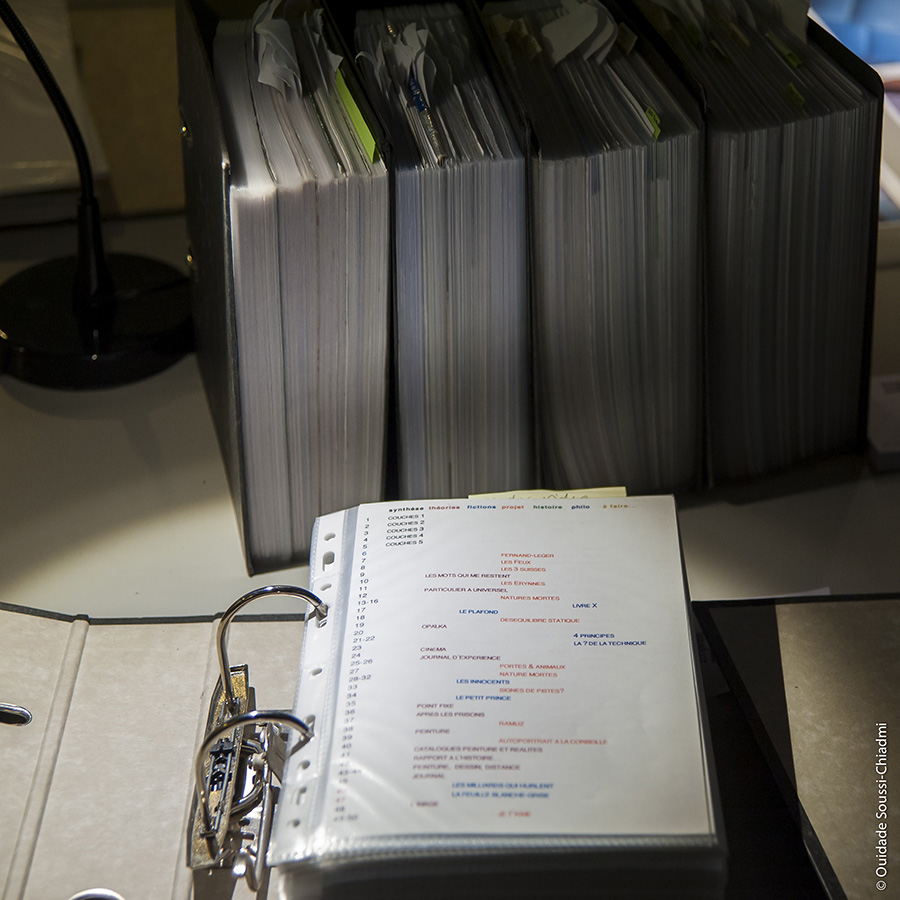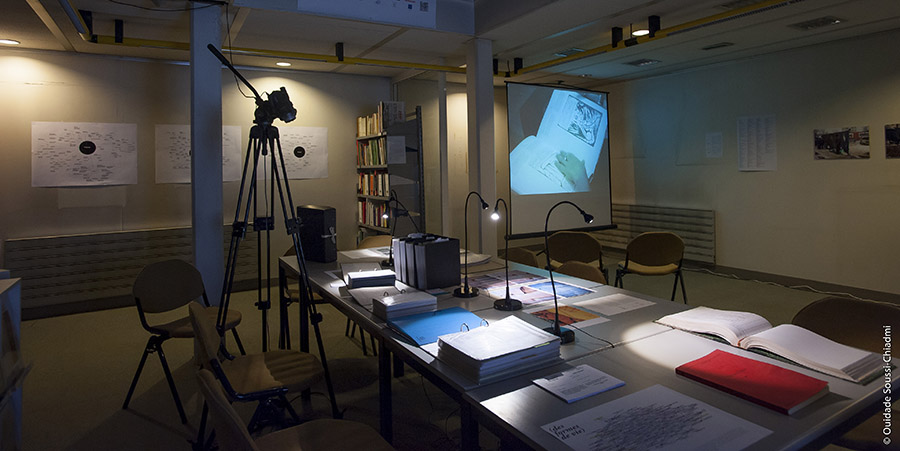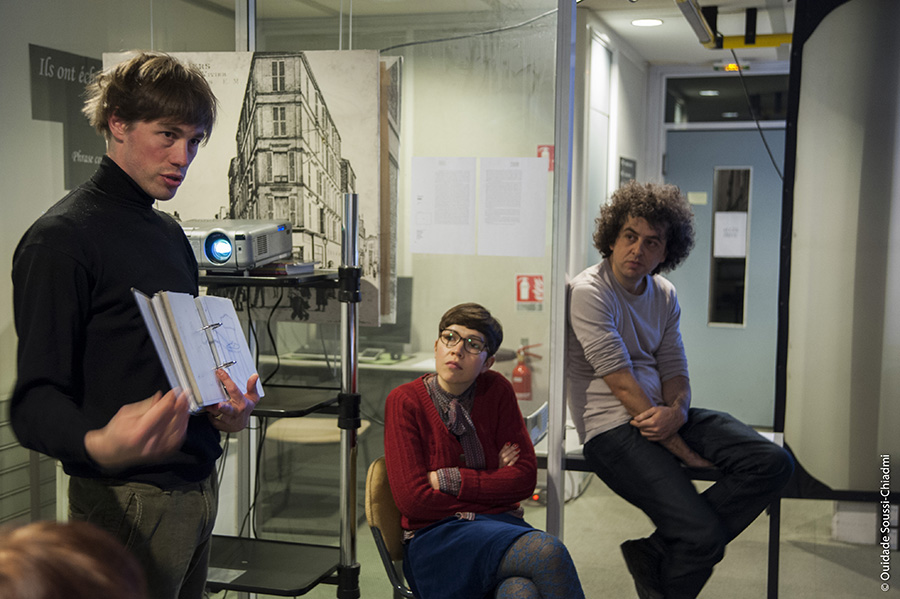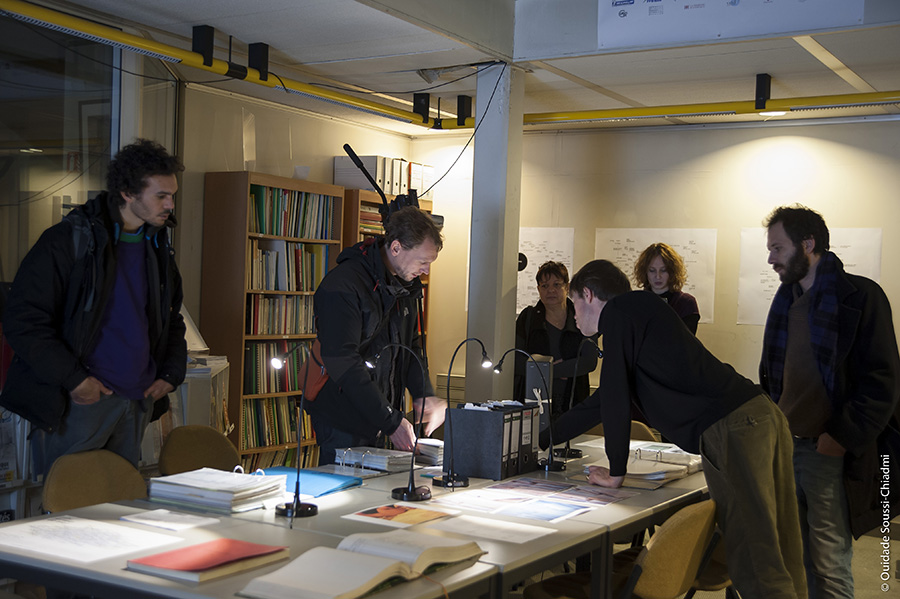| This is part of an activation of Franck Leibovici's project Des Formes de Vie with the Laboratoires d'Aubervilliers. It happened on December 12th 2012 at the Archives de la ville d'Aubervilliers. |
|
Confronting my personal archive with a city archive brought up questions about what happens when enlarging an object from a personal subject to a collective subject. What I mean, there is not only a shift in scale, but also in its whole project. I came with 6 out of 13 folders. A massive object on a personal level which had absolutely no weight in front of (or literally laying over) the 4 Kilometers stocked underneath. On a personal level I keep toghether the legislator (who decides about the archive and its rule), the operator (who does the work, complete the task, maybe give some feedback to the legislator) and the reader (any subject that looks for answers and thinks he has more or less good reasons to exoect them in that archive). The activation, which is the public discussion along with the archivist of the Archive de la ville d'Aubervilliers (the operator) lead us to question the distances that appear between the three figures when they become public and distinct. The way I can deal with what is missing, left out or purposely forgotten (but still remebered) is not available to the collective subject, even less for a public subject. The relations between the three figures are contractualized and the tasks objectively described in order to guarantee the public subject an existence. A public entity exists through its archive. It's the way it can grasp its past and prove its existence. But it is constituted by distinct subjects, personal subjects, confronted themselves with many other subjects, all part, for the most, of this public body. At this point appeared the many zones of negotiations and blackouts that perforate the collective, objective, enlightened subject. It is not bad, just abolutely unavoidable. |
 |
An archive is always contemporary An archive constitutes the subject who constitute it. But the relation of how each other constitutes each other is problematic. An archive can answer questions but it cannot know what questions will come while it's constitued An archive as such has no meaning in itself. A subject's desire for an archive will always be overwhelmed by its operator (who will never be able to fully realize the archive) and its reader (whose questions will always exceed what the archive was supposed to respond to). An archive's answers are always incomplete and slightly shifting the question that came upon it. |
 |
| This also gave me a new insight of how my archive works with me. In fact there is a lot of confidence and commitment put into this object. And when i go back into it, finding new things to do starting somewhere in there, it seems my archive is less an archive than a kind of book of magic spells. |
 |
